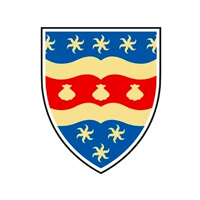fees waived
Ocean Science and Marine Conservation, BSc (Hons), with industry placement
University of Plymouth, United Kingdom
Subject ranking
UK / USNews 2024 4th
UK / ARWU 2024 16th
UK / ARWU 2024 20th
Costs
food & rentS$17.2K / year
Entry requirements
Scholarships
1 available
Unlimited quantity
Unlimited quantity
Unlimited quantity
Limited quantity
Information
Code
Code
Intakes
Website (External)
Programmes
Information
Duration
2029
Course summary
Do you have a passion to understand and protect life in our seas? This course offers an integrated approach to understanding the oceanographic processes that support life in our oceans, how marine ecosystems function and how marine activities can be managed sustainably. You’ll learn about the policy structures designed to protect marine ecosystems and our oceans, and be primed with the skills and enthusiasm to confidently start a job in marine conservation management and scientific research.
- Ranked top 15 in the UK and top 100 globally for Earth and Marine Sciences in the QS World University Rankings 2023.
- Gain specialist skills including ecological survey methods and quantitative data analysis, and qualitative skills related to stakeholder data collection such as structured interviews and questionnaires.
- Prepare for careers in marine conservation and other marine industries such as environmental consultancy and the marine energy sector.
- Draw on expert staff involved in internationally-leading research including managing protected populations and marine protected areas (MPAs), marine and coastal governance, marine ecosystem services and economics, and society and the sea.
- Develop your range of practical skills with our own fully-equipped fleet of boats, a £4.65 million Marine Station used as a base for fieldwork afloat, and industry standard oceanographic and surveying equipment.
- Option to take the industry-recognised professional diving qualification (HSE Professional SCUBA) alongside your degree and an optional dedicated scientific diving module to provide training and qualification for diving-based research projects and employment (limited places and additional costs apply).
- Experience an overseas field course that is aimed at integrating ocean science and marine conservation knowledge and understanding across the different sub-disciplines to address real-world issues.
Modules
Your first year, shared across the Marine Science Undergraduate Scheme, introduces the full range of topics within the degree and develops your underpinning scientific knowledge and practical skills. You’ll develop your understanding of the Earth’s oceans and the key physical, chemical, and biological processes that occur in these systems. You’ll build practical skills and enhance your ability to analyse, present and interpret scientific data through field-based activities.Your second year introduces specialist marine conservation concepts and continues to build knowledge and understanding of a broad range of topics in ocean science. The core marine conservation modules develop an understanding of the range of impacts human activities have on marine ecosystems. You’ll have the opportunity to develop your interests through a choice of option modules covering areas such as coastal oceanography, scientific diving and more advanced hydrographic survey and mapping methods.Gain relevant industrial or workplace experience with the Ocean Science placement. During your final year you’ll develop your scientific skills with the opportunity to participate in a residential field course. A large part of your final year will be spent on an independent research project with guidance from an academic advisor. Taught modules will complete your advanced understanding of marine ecosystem conservation and marine conservation policy and management. You’ll have the opportunity to develop your specific interests, for example in marine pollution or biological oceanography, through an option module. The modules shown for this course or programme are those being studied by current students, or expected new modules. Modules are subject to change depending on year of entry and up to date information can be found on our website.
Assessment method
For up to date details, please refer to our website or contact the institution directly.
Qualified teacher status (QTS)
To work as a teacher at a state school in England or Wales, you will need to achieve qualified teacher status (QTS). This is offered on this course for the following level:- Course does not award QTS
Your first year, shared across the Marine Science Undergraduate Scheme, introduces the full range of topics within the degree and develops your underpinning scientific knowledge and practical skills. You’ll develop your understanding of the Earth’s oceans and the key physical, chemical, and biological processes that occur in these systems. You’ll build practical skills and enhance your ability to analyse, present and interpret scientific data through field-based activities. Your second year introduces specialist marine conservation concepts and continues to build knowledge and understanding of a broad range of topics in ocean science. The core marine conservation modules develop an understanding of the range of impacts human activities have on marine ecosystems. You’ll have the opportunity to develop your interests through a choice of option modules covering areas such as coastal oceanography, scientific diving and more advanced hydrographic survey and mapping methods. Gain relevant industrial or workplace experience with the Ocean Science placement. During your final year you’ll develop your scientific skills with the opportunity to participate in a residential field course. A large part of your final year will be spent on an independent research project with guidance from an academic advisor. Taught modules will complete your advanced understanding of marine ecosystem conservation and marine conservation policy and management. You’ll have the opportunity to develop your specific interests, for example in marine pollution or biological oceanography, through an option module. The modules shown for this course or programme are those being studied by current students, or expected new modules. Modules are subject to change depending on year of entry and up to date information can be found on our website.
A local representative of University of Plymouth in Singapore is available online to assist you with enquiries about this course.

